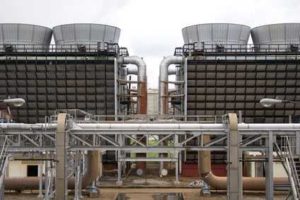-
 Tail Light 1 x $80.00
Tail Light 1 x $80.00 -
 Wiper Blades 1 x $80.00
Wiper Blades 1 x $80.00 -
 Suspension 1 x $80.00
Suspension 1 x $80.00 -
 Air Filter 1 x $80.00
Air Filter 1 x $80.00 -
 Car Brakes 1 x $80.00
Car Brakes 1 x $80.00
WATER TREATMENT COOLING TOWERS & BOILERS: All natural waters contain varying amounts of suspended and dissolved matter as well as dissolved gases. The type and amount of impurities in fresh water vary with the source (lake, river, and well) and with the area of location. Impurities in water become an important consideration when water is to be used for steam generation. With the trend toward higher-pressure boilers, pretreatment has become the key to successful operation of industrial power plants. Feedwater must be pretreated to remove impurities to control deposition, carryover, and corrosion in the boiler system. Poor quality water gives poor quality steam.









